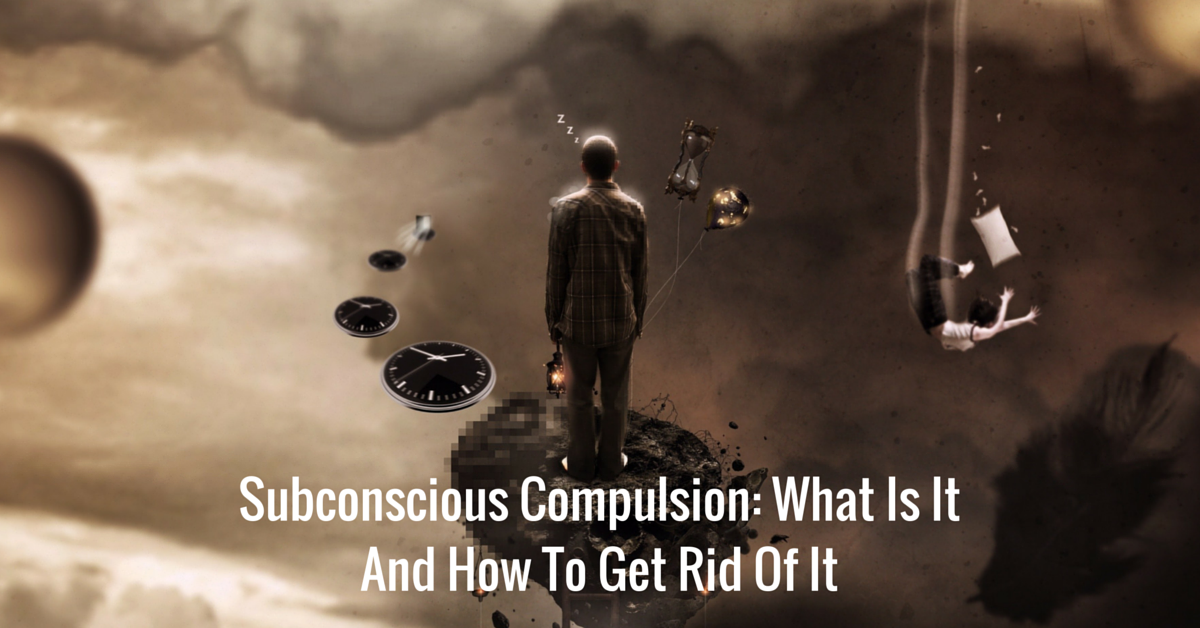The compulsion to put on a mask
Many a times we repeat certain actions inadvertently or do things even though we don’t really mean to.
For instance, have you ever found yourself checking the number twice before dialing or checking whether you have locked the door properly despite having locked the door seconds back or eating some food even if you don’t need to just because you can’t let it go waste.
Now think of a really confident, cool person – man or woman. Angelina Jolie. Or James bond. Or someone you know in real life who you trust in troubled times to know what to do. Even someone who is just charismatic or charming.
What is attractive about them is that they know what they are doing. They are not fumbling around – they are not always worried about an impending doom. Self-assured sure-footed action, when taken with conviction, evinces faith and positive feelings in our own selves as well as the people around us.
There are both good and bad things we do out of subconscious compulsion – and they tend to emerge as habit patterns. They are the triggers that control us no matter what we say we want to do.
Understanding and identifying things we do out of subconscious compulsion (or triggers for want of a better word) enables us to embrace the good ones and weed out the ones which are not so desirable. In this post, I am going to talk about a couple of negative ‘sub-con compulsions’ that we often overlook, sometimes even consider good and let them become part of our personality, with not-so-impressive effects.
Checking repeatedly if things are alright
While reading something, do you keep going back to see if you read it correctly? Happens to the best of us – and it adds a lot to our reading time, slowing us down considerably. if you try to avoid regressing while reading consciously, you’ll see that regression adds little to cognition or retention of what you are reading. This behavior manifests itself in many forms – checking two identical documents in two different formats just to see if they are identical., for instance. Or just going back to the door to check if it is properly locked, despite having locked it yourself moments earlier. We often think that such behavior is prudent and diligent – but the truth is that it comes with no benefit, slows us down, and if done in front of other people, such behavioural pattern, especially when recurring, can reduce how reliable people perceive you to be. Often others will see your actions to be an indication of innate fear or lack of confidence.
It also inevitably leads to wastage of time. It’s definitely not the way of self-assured people. At an extreme level, this can take the shape of OCD – Obsessive Compulsive Disorder.
How to get rid of such behavior?
Accept that while being prudent is good, being over cautious just wastes time and highlights lack of confidence.
Be confident about what you are doing. Do things consciously and give what you are doing your full attention. Paying complete attention to whatever you are doing soon develops into a habit – and it is a very beneficial habit to have. It translates into a confidence and assurance people feel around you. Get rid of the fear of being wrong. Know that you have done something with presence of mind and used your best judgment, no matter how small a thing it may be – and if it still goes wrong, you can take it in your stride.
Doing things even if you don’t want to
We do a lot of things we are ‘supposed to do’ or ‘expected to do’ – even when we don’t actually want to do them. Some examples of what you may do out of compulsion: You think you don’t have an option but to come to the party your friend has asked to and smile at every goddamn acquaintance; you feel a need to finish that surplus food you ordered as otherwise it would be wasted. You can’t go to a trip with friends because they are going to climb rocks and you never have done anything like that. Question yourself – do you really want to do it? Do you really want not to do something you usually don’t do?
Why would one eat beyond her limit, although she doesn’t really want to anymore? She probably doesn’t stop because she doesn’t give a thought to it and does it automatically, on a pre-programmed mode! She experiences a compulsion at a subconscious level.
How to get rid of it?
Subconscious compulsion does not only leads to a waste of time, it also leads to internal unhappiness. It’s important to stop, take note of them, make efforts to get rid of such behavior, if you want to appear more confident and happy!
When you realise that you are doing things which you don’t want to do, it’s simple to stop it. Just think why you don’t want to do it. Find the reason – and then say it out loud. Done. The difficult part, however, is to realise that you are doing things out of sub-con compulsion that you really don’t want to do.
There’s the only way for that – observe your own actions for signs of compulsive behaviour – things that lead you to be unhappy about it later, disturbs you a little bit somewhere inside your head. We all have such negative sub-con compulsive traits. Keep the radars turn on inside your head – and you’ll start picking them up.
Hope the post was useful for you. Feel free to drop your comment or suggestion.
 Serato DJ Crack 2025Serato DJ PRO Crack
Serato DJ Crack 2025Serato DJ PRO Crack








 Allow notifications
Allow notifications


